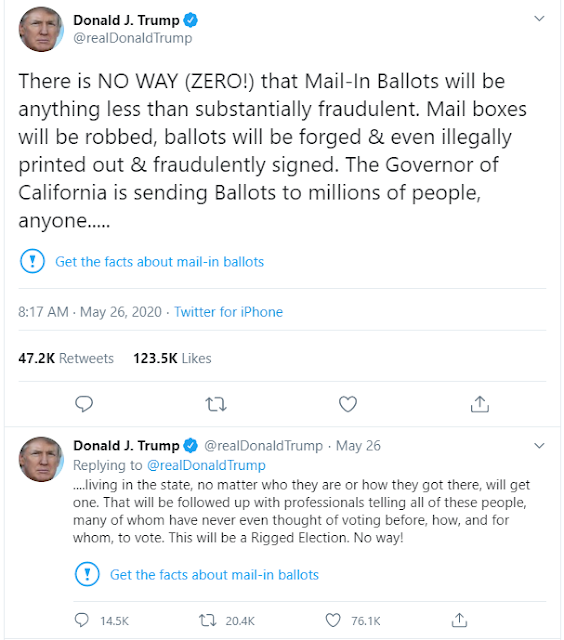I don't know when my teachers first taught me about bias in the media. High school, perhaps?
It's still very relevant.
I like to go to different news sites to see things from different angles. Different people can have different views and concerns about the exact same situation, so I find it helpful to be aware of those sort of things.
So let's talk about politics.
A quick glance at front pages can show a page's leanings.
CNN:
And Fox.
CNN is less favorable of Trump. Fox is more favorable.
A true story is more likely to hit their front pages if it supports their views and less likely to if it does not.
What trumps that rule is "Will people click it?"
If the news is explosive enough and everyone's covering it, it will hit a front page regardless.
Tara Reade accused Joe Biden of assault in 1993.
One headline (Fox):
Another headline (CNN):
I don't expect either site to lie outright, because they don't want to open themselves to lawsuits. I do skim both to see what they view as highlights to see if they have different takes on the same thing.
There were commonalities in both articles.
CNN's was an 'analysis,' so they typically come to some of their own conclusions in those (I classify them in my head as "Facts + opinion-piece").
I've been thinking about writing this article for a while, so my screenshots are all from over a period of time. This was not "Mike picked one day and decided to pick everything apart."
Here's another screenshot from a different day I took of the top headlines on both pages I looked at and put them next to each other.
Fox was pushing that there's a controversy over the Russia probe. CNN was pushing that there's a controversy over how the US has responded to the Coronavirus threat.
The fact is: Yes, they're both right. There are lots of people concerned about both. However, if you only read one news site you will be bombarded with one slant.
If you are bombarded with one slant for too long, it can change how you view things. Headlines are often made to make you react (and click) before you think.
That's a statement that many people will be uncomfortable with.
The Nazis believed it very strongly, though.
Or at least that feels very true.
Joseph Goebbels was a Nazi propagandist who's often attributed with this quote (see the fancy meme?), but then again I found a link saying that may not be true.
So what's to believe?
Did the quote really originate from him? Or did it just sound so right and so many people have quoted it that it gained enough steam to have a life of it's own?
It could have been he said it, but the lack of a primary source does concern me. A primary source would be someone who was there (or even Goebbels himself). A secondary source would be someone who heard it from someone who was there. A tertiary source would be three links on and so forth and anyone who's ever played "Telephone" as a kid knows that the further down the line a message is passed it changes.
Reliable primary sources are great!
For example, I have nurses in my Facebook feed. This nurse actually lived with my family for years (not that you'll recognize her in all her gear!).
I could ask her about her experience with the coronavirus, with personal protective gear, and with quarantine.
Her experience could paint a picture of the hospital she worked at, but I wouldn't want to cherry pick her experience and apply it to nation as a whole (which is something to look out for when reading!).
What's interesting with current political commentary is that anyone can go straight to Donald Trump's twitter and see exactly what he's posting. His tweets frequently make headlines and are discussed, so I naturally go to the primary source whenever I wonder, "Did he really say that?"
And I can confirm exactly what was said or wasn't said.
NOTE: Even if it's said, there's lots of room for interpretation. That's what keeps news people talking all day and night.
Patterns do show up: Donald Trump doesn't like "Fake News."
But there's a lot of "he said" and "she said" type things that no one will really know unless they were there.
May 26th: Twitter made an interesting move the other day. They flagged something Trump said as "Potentially misleading."
Regardless of your stance, Trump had his own opinion about his tweet being marked.
I like to think I'm good at examining my own thoughts, but I'm only human. I'm not an expert by any means, so if I made you think about anything I encourage you to look into it yourself. I'd be happy to talk in person about how I feel at a moment, but I'm hesitant to write down anything permanent when there's always new information coming out and, to quote Proverbs 18:17, "In a lawsuit the first to speak seems right, until someone comes forward and cross-examines."















No comments:
Post a Comment